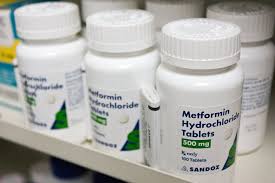Source: heraldtribune.com
A popular diabetes drug sometimes taken to slow aging may diminish some of the expected health benefits of aerobic exercise in healthy older adults, according to a new report.
The drug, metformin, can blunt certain physical changes from exercise that normally help people to age well.
The results raise questions about the relationship of pills and physical activity in healthy aging and also whether we know enough about how drugs and exercise interact. The results are particularly disconcerting given that healthy, active people may be considering taking the drug to slow aging.
Metformin currently is the most-prescribed medication globally for people with Type 2 diabetes. It allows them to improve their blood-sugar control and insulin sensitivity, in large part by reducing the amount of sugar released by the liver into the blood. In people with diabetes, the benefits can clearly outweigh the risks.
But in recent years, scientists, physicians and plenty of other people entering middle age have become intrigued by the idea that it might also change how healthy people age.
Unsurprisingly, some researchers have speculated that combining metformin and exercise might lead to even greater anti-aging benefits than either approach alone. But little has been known about just how and whether metformin and exercise might work together deep inside our bodies and cells.
So, for the study published in Aging Cell, researchers at the Oklahoma Medical Research Foundation, Colorado State University and the University of Illinois decided to ask 53 sedentary but otherwise healthy men and women in their early 60s to sweat and swallow metformin.
It turned out, to no one’s surprise, that most of the volunteers had better aerobic fitness and blood-sugar control than before, as well as improved insulin sensitivity. But overall, the men and women taking metformin gained less fitness, upping their endurance by about half as much as those taking a placebo. Many of those taking the drug also showed slighter, if any, improvements in insulin sensitivity. (Hardly anyone’s weight changed much, in either group.)
The scientists next looked microscopically inside their volunteers’ muscles and found telling discrepancies between the two groups. The muscle cells of the exercisers on placebo teemed with active mitochondria, which are the cells’ powerhouses. Mitochondria transform oxygen and sugar into cellular fuel in a process referred to as mitochondrial respiration. Higher respiration generally means better cellular health.
In the muscle cells from the men and women on placebo, mitochondrial respiration rose by about 25%, compared to levels at the study’s start. But not so in the muscle cells from the metformin group, which showed little if any upswing.
In effect, metformin road-blocked the normal exercise-related gains in muscle-cell mitochondrial respiration, says Benjamin Miller, a principal investigator in the aging and metabolism research program at the Oklahoma Medical Research Foundation, who oversaw the study.
These results do not mean that people should stop or avoid using metformin, Miller cautions, even to brake aging. But the findings “do give us reason to think a bit more cautiously” about mixing metformin and exercise in healthy people, Miller says.
“There was not an additive effect” from combining them, he says. Instead, metformin and exercise “did not seem to play together very well.”
